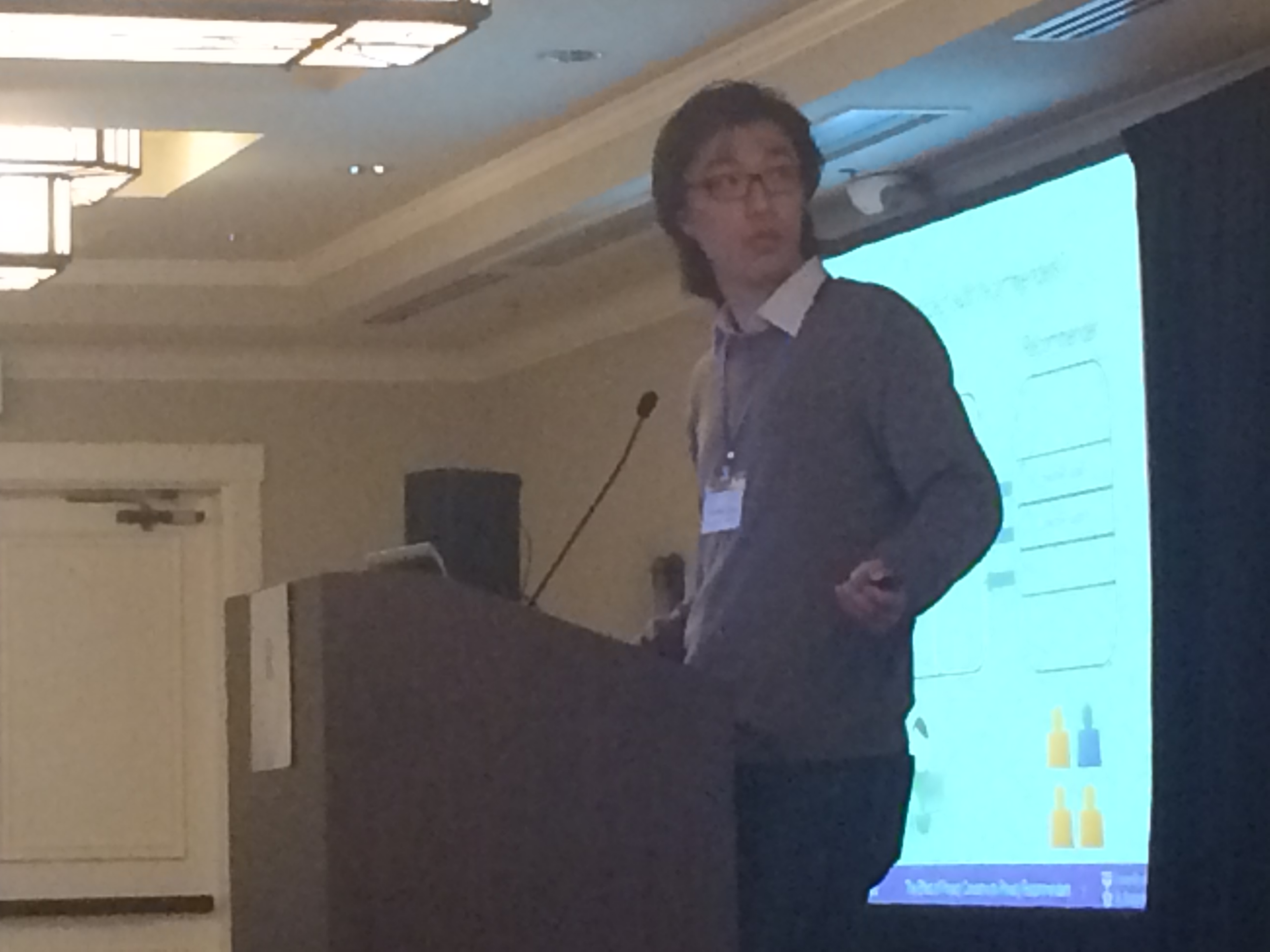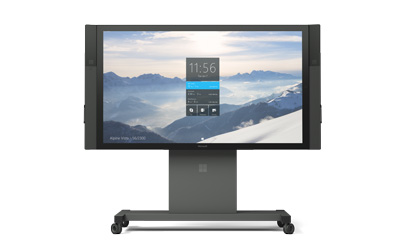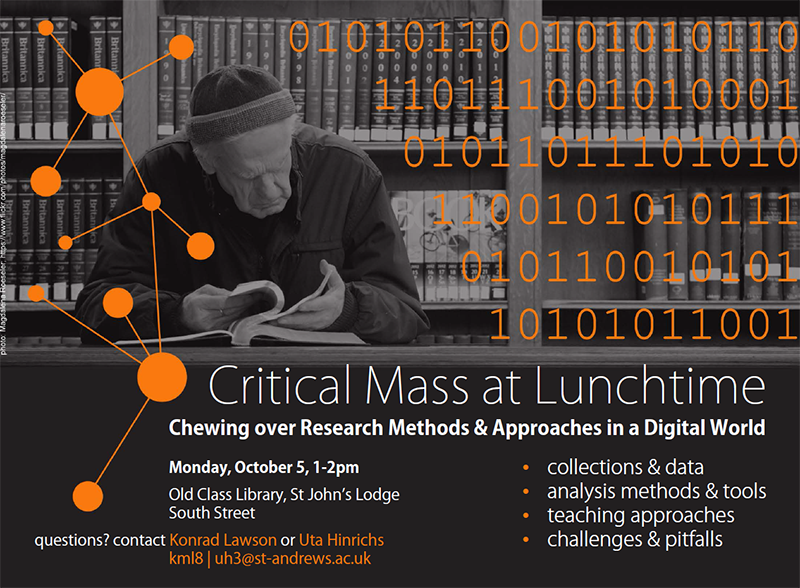In March of 2016 Yuchen Zhao and Aaron Quigley from St Andrews attended the ACM SIGCHI Intelligent User Interfaces Conference in California. Yuchen was attending to present a long paper on a user study about location-privacy recommenders and a student consortium paper while Aaron was attending as the ACM SIGCHI Adjunct Chair for Specialised Conferences.

MORE
News
Abstract
Perhaps the term computer ‘memory’ has led people to believe that human memory has to be perfect and infallible. Many people worry when they realise they forget and some turn to recording and collecting as much as they can, e.g. photos or videos through life logging. Some people assume that by collecting they can avoid forgetting or at least have access to the information anytime later. And that is where they might be wrong. First of all, recordings are not equivalent to memories, and memories ‘can not be stored’. Secondly it has already been shown that people collect too much and organize too little for them to be able to find information later [1]. Thirdly, human memory works best when we forget… a lot.
MORE
Last week we were pleased to receive our Microsoft Surface hub which was awarded to us by Microsoft Research and Microsoft based on our Academic Research Request Proposal for the “Intelligent Canvas for Data Analysis and Exploration”. You can see a couple of videos of the unboxing below!

MORE
San Francisco, CA, USA, 27th February 2016.
Submission due date: 22nd December 2015 (notifications in time for early registration), or 8th January 2016.
https://collocatedinteraction.wordpress.com/
ABSTRACT
In the 25 years since Ellis, Gibbs, and Rein proposed the time-space taxonomy, research in the ‘same time, same place’ quadrant has diversified, perhaps even fragmented. The goal of this one-day workshop is to bring together researchers with diverse, yet convergent interests in tabletop, surface, mobile and wearable technologies, and those interested in the social aspects of interaction, such as conversation analysis and ethnomethodology. These communities have matured considerably, and produced significant exemplars of systems, methods, and studies concerned with collocated interactions. Yet, new challenges abound as people wear and carry more devices than ever, creating fragmented device ecologies at work, and changing the ways we socialise with each other. In this workshop we seek to start a dialogue to look back as well as forward, review best practices, discuss and design paper-prototypes using the collocated design framework, to consider how we might address new and future challenges through collocated design practice.
MORE
Tangible Data, explorations in data physicalization @ TEI’16 Eindhoven 14th & 16th Feb 2016
http://dataphys.org/workshops/tei16/
Call for Participation
We are pleased to announce our studio-workshop “Tangible Data, Explorations in Data Physicalization”, which will take place at TEI’16 in Eindhoven on the 14th and 16th February 2016. This workshop addresses both experienced researchers and practitioners as well as those who are new to the field but interested in applying Data Physicalization to their own (research) practice. The workshop will provide opportunities for participants to explore Data Physicalization hands-on, by creating their own prototypes built with tangible media including digital fabrication technologies. These practical explorations will lead into reflective discussions on the role tangibles and embodiment play in Data Physicalization and the future research challenges for this area.
MORE
- San Jose, CA, USA
- 7th May 2016
- Submission due date: 8th January 2016
https://proxemicmci.wordpress.com/
ABSTRACT
Recent research on mobile collocated interactions has been looking at situations in which collocated users engage in collaborative activities using their mobile devices. However, existing practices fail to fully account for the culturally-dependent spatial relationships between people and their digital devices (i.e. the proxemic relationships). Building on the ideas of proxemic interactions, this workshop is motivated by the concept of ‘proxemic mobile collocated interactions’, to harness new or existing technologies to create engaging and interactionally relevant experiences. Such approaches would allow devices to not only react to presence and interaction, but also other indicators, such as the interpersonal distance people naturally use in everyday life.
MORE
In October 2015 we attended two IEEE conferences in the USA. Daniel Rough presented a full paper at the IEEE Symposium on Visual Languages and Human-Centric Computing, October 18–22, in Atlanta, Georgia. Uta Hinrichs presented a full paper at the IEEE Information Visualization (InfoVis) conference as part of VizWeek, October 25-30 in Chicago, Illinois. You can find details of these and all our papers on the publications page.
On November 10th, Daniel and Uta will reprise their talks here in St Andrews and everyone is welcome to attend. You can find the details for the two talks below along with links to the papers via the University of St Andrews research portal.
MORE

On Friday the 23rd of October, Aaron Quigley presented a keynote talk at the 9th annual Irish HCI conference (iHCI 2015) in Dublin. The talk was entitled “Trapped in AppLand: Archipelagos of Interaction”. The conference was hosted at the National College of Art and Design (NCAD) in Dublin and organised by the NCAD+UCD Creative Technology Network and was sponsored by the ACM SIGCHI Chapter Ireland and the NCAD+UCD Project. The conference showcased leading research by researchers in Ireland, and by Irish researchers working internationally, through poster and curated presentation sessions. The overall theme for this year was creative technology and the future of HCI in Ireland.
MORE

Last week, Atlanta hosted the annual IEEE Symposium on Visual Languages and Human-Centric Computing (VL/HCC). This brought researchers in various fields of Computer Science, particularly those in human-computer interaction and software engineering. Established in 1984, the mission of the conference is to support the design, theory, application, and evaluation of computing technologies and languages for programming, modelling, and communicating, which are easier to learn, use, and understand by people.
Daniel Rough, a PhD student in SACHI attended this conference to present his research called “Jeeves”, a visual language to facilitate ESM application creation, which was accepted as a full paper. (You can find details of this paper via our publications page).
MORE

Critical Mass at Lunchtime is an interdisciplinary meeting to chew over research methods and approaches in a digital world. Starting on Monday the 5th of October, this regular seminar series will cover collections & data, analysis methods and tools, teaching approaches and challenges and pitfalls. Please contact either of the organisers Konrad Lawson or Uta Hinrichs for more details.
Starting, Monday 5th October, 1-2 pm in the Old Class Library, St John’s Lodge, South St, St Andrews

